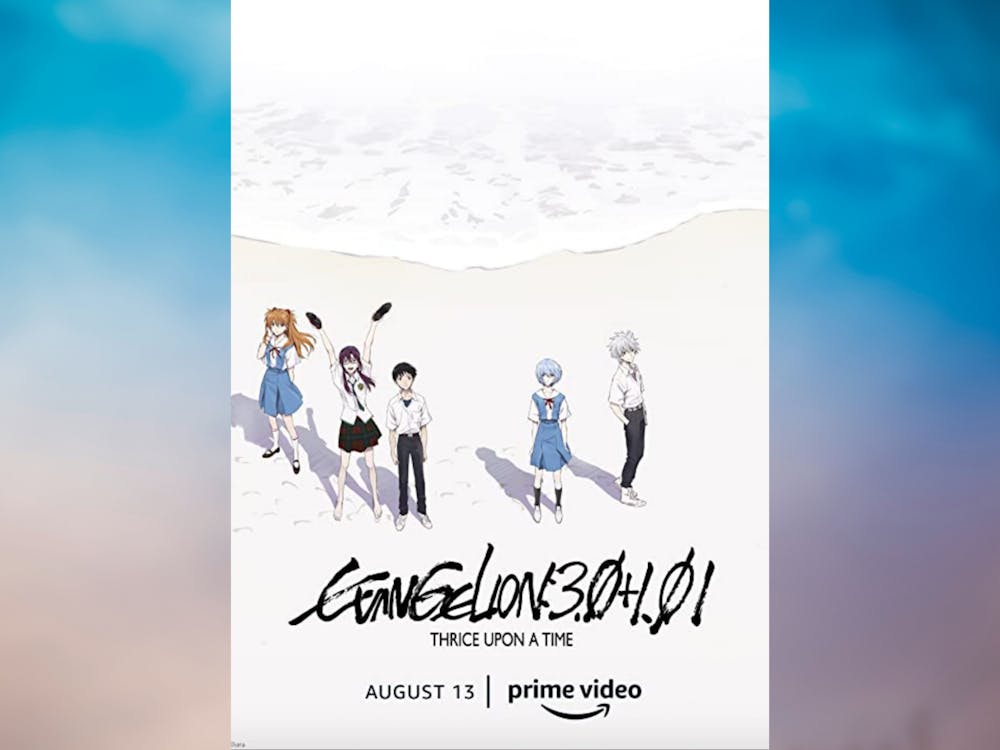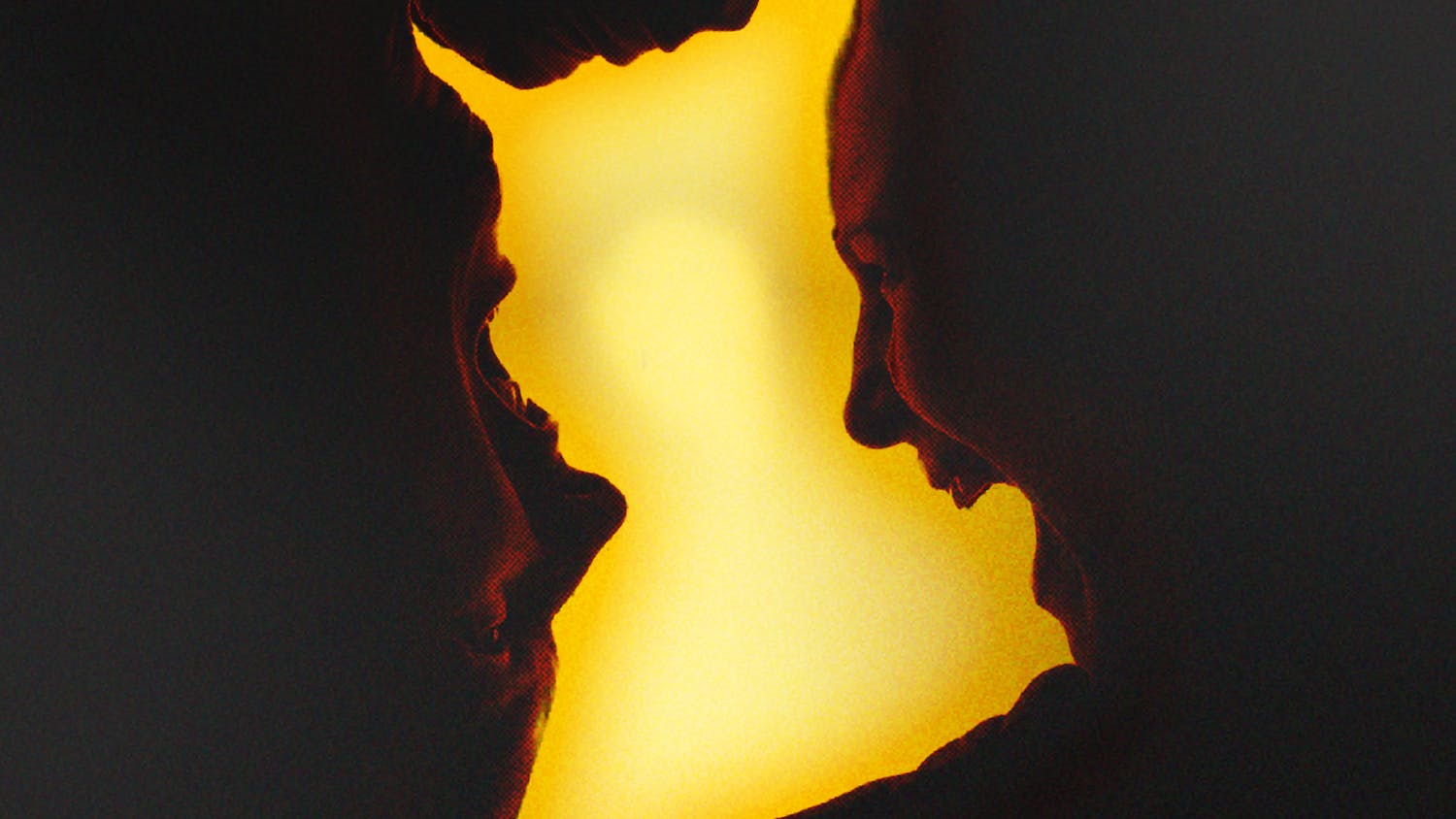The only thing more confusing than the title “Evangelion: 3.0+1.01 Thrice Upon a Time” is the plot of this series-ending anime movie.
From time loops to “Imaginary Evangelions,” (whatever that means), Thrice Upon a Time’s additional story beats are barely comprehensible. The reasoning behind the title itself including the numbers 3.0 + 1.01 is still a mystery.
Despite this, “Thrice Upon a Time” remains a powerful and conclusive finishing film for the “Neon Genesis Evangelion '' series that fans will look back on fondly for years to come.
After delays caused by the COVID-19 pandemic and nearly a ten year wait, “Evangelion: 3.0+1.01 Thrice Upon a Time” premiered in Japan on March 8 before it was released globally via Amazon Prime Video Aug. 13. Fan anticipation was high, as “Thrice Upon a Time” went on to end its theatrical run breaking Japanese box office records of over ¥10 billion (roughly $91 million).
For most other films, a bemusing story would be a detriment, but the anime series that “Thrice Upon a Time” retells, “Neon Genesis Evangelion,” is no stranger to nonsensical plotlines. Fans of the series embrace every bit of Evangelion’s near-inexplicable world, which is something that series creator Hideaki Anno heavily leans upon to tell his story “Thrice Upon a Time.”
The story of “Neon Genesis Evangelion '' follows teenage protagonist Shinji Ikari as he is enlisted into piloting a giant bio-robot known as an Evangelion for Japan’s paramilitary force, Nerv. Extraterrestrial threats known as “Angels” threaten humanity and Evangelion pilots like Shinji are the only people who stand a chance fighting against them.
After a flashy beginning scene of a fight over Paris, “Thrice Upon a Time” slowly waltzes off the ground with Shinji walking along the outskirts of Tokyo-3 (another Tokyo that was created to intercept Angel attacks) with fellow Evangelion pilots Rei Ayanami and Asuka Langley. The group comes across a settlement of survivors thriving off of the land and decides to rest in the quiet village.
This new setting for the first hour of the film is a complete departure from everything we’ve seen in “Evangelion,” but it gives the spent cast of the film a moment of solace as they witness a hopeful world.
“Thrice Upon a Time’s” gorgeous visuals shine during this half of the film as they’re accompanied by the soothing and melodic music of the movie’s soundtrack. These aesthetics are desirable additions that immerse you in the current point of the plot: a well-deserved sense of rest that the characters are experiencing during their time in the village.
Each character is given ample time to process their pain and is granted an opportunity to grow. Shinji is still coming to terms with his near-causation of the end of the world in the prior film, Asuka is growing accustomed to living with her loneliness and Rei deals with her aimless existence by learning to farm with local villagers. Rei’s growth during her time in the village is exceptionally stirring to witness and is actually what catalyzes Shinji’s long-awaited “hero moment.”
Complicated theological terms like “Lance of Gaius” and “Key of Nebuchadnezzar” aside, the second half of “Thrice Upon a Time” is more what fans are used to when it comes to the “Evangelion” series: Evangelions fighting Angels as the strategists behind the scenes shout the current battlefield on-goings, occasionally marveling at a new “Spear of whatever” or additional biblical nouns. It’s stimulating, it’s flashy, and it’s a hell of a lot of fun to watch, but “Evangelion” never crosses the threshold of gaudiness, even during its most colorful moments.
Every visual piece serves as a subliminal metaphor to “Evangelion’s” apostolic foundations, and more often than not this cadence of religious clamoring serves to confuse the audience more so than it does to enlighten it. Regardless, it’s a welcome facet of the long-running series’ charm that never wholly inhibits the viewer’s overall understanding of the films.
The final act of “Thrice Upon a Time” is something of a catharsis for everyone involved with the film: the audience, the characters, and even the creator himself, Anno. Distinctive art style choices flash upon the screen as surprisingly sensical revelations are unearthed by the antagonist and Shinji’s abusive father, Gendo Ikari.
The ultimate theme of “Neon Genesis Evangelion” — the proverbial reluctance to open your heart to peers out of the fear of being hurt — peeks its head once more during the movie’s conclusion as Shinji overcomes his own fear of connections. In contrast to the original ending to the series, “End of Evangelion,” “Thrice Upon a Time” steps away from the dark and unfulfilling to instead deliver a conclusion with promise, hope and happiness, as Shinji saves everyone from the damning Human Instrumentality Project.
The characters of the series all move on from their painful pasts in the final act, and the immense amount of energy each character expends returns to them. aWith the help of a triumphant Shinji, everyone is able to simply let go and progress their lives, just as members of the audience and the team creating the film are expected to leave “Evangelion” in the past and push on with life.
With its final, stirring note, “Thrice Upon a Time '' wonderfully wraps one of anime’s most popular stories in a blanket of comfort. “Neon Genesis Evangelion” has always served as a distinctive anime, but the finale to the series glimmers beautifully with a radiant hope that is as deeply inspirational as media can be.
Rate: 9/10
Contact Paul Lombardo at plombardo@alligator.org. Follow him on Twitter @KopiKitten.

Paul Lombardo is a journalism student at UF and a staff writer with the Avenue. Additionally, he writes for various gaming-related publications. He is an avid lover of cats and anime who listens to an unhealthy amount of video game soundtracks.






